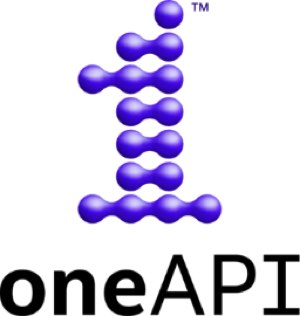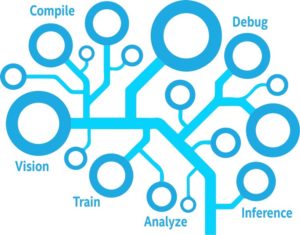 Today Intel introduced the oneAPI DevCloud to make it easier and more productive for coders currently working from home. oneAPI is a cross-industry, open, standards-based unified programming model that delivers a common developer experience across accelerator architectures—for faster application performance, more productivity, and greater innovation.
Today Intel introduced the oneAPI DevCloud to make it easier and more productive for coders currently working from home. oneAPI is a cross-industry, open, standards-based unified programming model that delivers a common developer experience across accelerator architectures—for faster application performance, more productivity, and greater innovation.
Developing code at home requires access to compute cycles, the latest software development tools, access across diverse hardware architectures—CPUs, GPUs, and FPGAs, and expanded storage capabilities. Through the new oneAPI DevCloud, Intel aims to provide extended access, capacity and support for oneAPI developers working from home.
oneAPI DevCloud
The oneAPI DevCloud is a development sandbox with cloud access to the latest Intel® hardware and oneAPI software. Try beta tools, frameworks and libraries; prototype projects for cross-architecture deployment with a standards-based, unified programming model; build heterogeneous applications; evaluate data-centric workloads; and learn Data Parallel C++ (DPC++), an evolution of C++ that incorporates SYCL*. Learn more about oneAPI.
 What You Can Do in the oneAPI DevCloud
What You Can Do in the oneAPI DevCloud
- Learn the oneAPI unified programming model.
- Train AI models for natural language processing, convolutional neural networks, and distributed training.
- Perform AI inference comparisons, deep learning for computer vision, and hardware acceleration.
- Develop designs and intellectual property for custom hardware IP and FPGA designs.
- Teach advanced FPGA-based university courses.
oneAPI Components
oneAPI is a single, unified programming model that aims to simplify development across multiple architectures – such as CPUs, GPUs, FPGAs and accelerators. There are two components of oneAPI – the industry initiative and the Intel beta product – both representing first steps on a long-term journey:
- The oneAPI initiative cross-architecture development model is based on industry standards and an open specification to enable broad ecosystem adoption of the technologies that will shape the next evolution of application development.
- The Intel oneAPI beta product is Intel’s implementation of oneAPI that contains the oneAPI specification components with direct programming (Data Parallel C++), API-based programming with a set of performance libraries, advanced analysis and debug tools, and other components. Developers can test their code and workloads in the Intel DevCloud for oneAPI on multiple types of Intel architectures today, including Intel Xeon Scalable processors, Intel Core processors with integrated graphics and Intel FPGAs (Intel Arria, Stratix). The effort represents millions of Intel engineering hours in software development to offer the global ecosystem of developers a bridge from existing code and skills to the coming XPU era.
Six Ways oneAPI DevCloud Now Makes #WFH Better
- Extended access. All DevCloud users now automatically get free access through July 1, 2020.
- Increased capacity and expanded hardware availability. Additional processor nodes and accelerators will provide access to the latest Intel CPUs, GPUs, and FPGAs.
- Updated software development tools. The newest releases of Intel® oneAPI beta tools and libraries are pre-configured, including improvements to unified shared memory and more GPU library functions.
- New simplified access. Improvements include immediate sign-up access; a new, modern IDE-like experience via JupyterLab*; and a simpler Secure Shell (SSH) client experience.
- Increased storage allocation. Each user now receives 220 GB of file storage and 192 GB of RAM.
- Expanded Dev-to-Dev #WFH forum support. Technical experts are available to provide tips and best practices for working from home.
In addition to the OneAPI DevCloud, the company offers the Intel DevCloud for the Edge, which provides developers access to a wide range of hardware configurations in order to test their applications for IOT Edge Solutions in a stable, secure environment.



